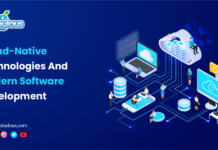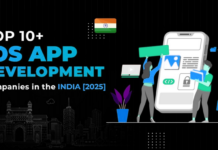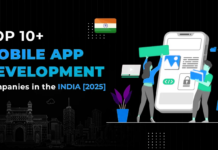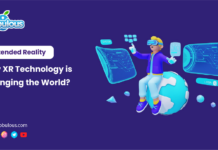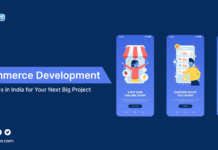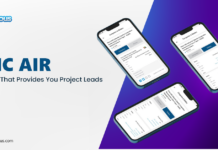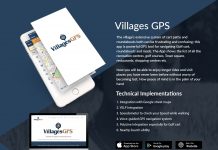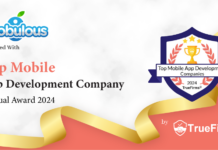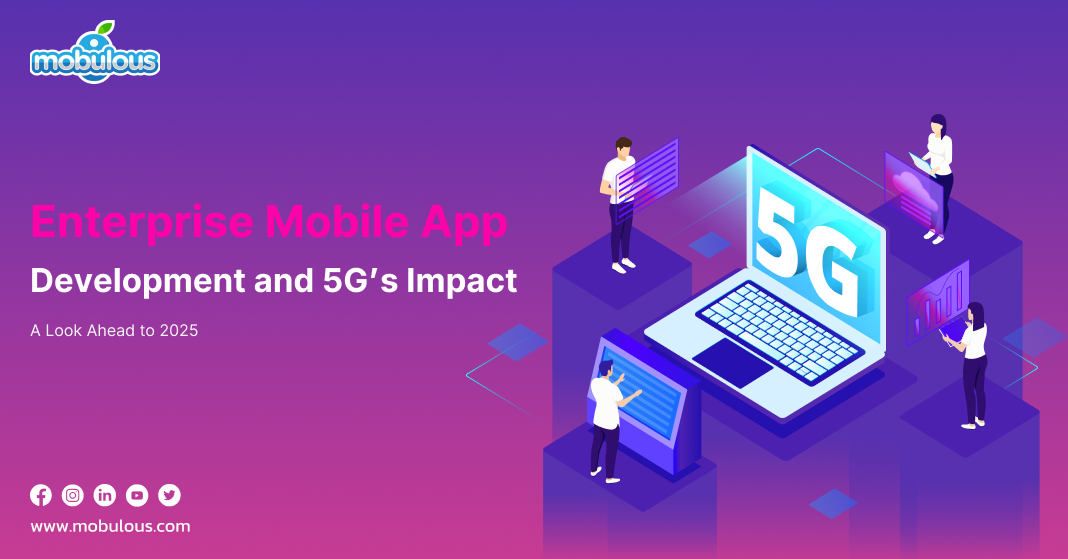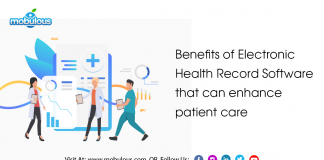The Impact of 5G on Enterprise Mobile Applications
Enterprise mobile app development stands at a transformative crossroads as we move through 2025. This move is largely driven by the widespread adoption of 5G technology. With ultra-low latency and unparalleled connection speeds, 5G is revolutionizing how firms conceptualize and deploy mobile solutions.
This technological synergy opens wide possibilities for real-time data processing, immersive experiences, and edge computing that reshapes how enterprises connect with their customers and workforce.
But what exactly does this mean for businesses? How will 5g and its impact shape enterprise mobile app development in the upcoming years? Let’s dive right into this blog to explore the impact of enterprise mobile app development in 2025 comprehensively!
For Query:- Seek Guidance From an Enterprise App Development Company!
What is Enterprise Mobile App Development?
Enterprise mobile app development is the practice of developing and deploying custom mobile apps specifically designed for large organizations’ internal and external operations.
These apps are customized to address exceptional business challenges, enrich productivity, and streamline workflows while maintaining high standards of scalability, security, and integration with existing enterprise systems.
They serve as important tools for digital transformation initiatives across different industries, making enterprise mobile app development services accessible to all.
For Query:- Seek Guidance From a Top Mobile App Development Company!
The Role of Mobile Apps in Business Operations
Mobile applications play an essential role in modern enterprises, allowing employees to work remotely, collaborate seamlessly, and access crucial data.
From customer relationship management, i.e., CRM tools to supply chain management solutions, mobile applications are transforming business processes. Below is the diversified role of mobile apps in business operations:
- Streamlines communication and collaboration between team members.
- Enhances data collection and real-time decision-making.
- Optimizes customer service and support operations.
- Facilitates remote work and field operations management.
- Automates routine tasks and business processes.
- Improves inventory and supply chain management.
Also Read:- 7 Essential Features of an Enterprise Mobility App!
Key Benefits of Enterprise App Development
Enterprise mobile apps have become essential tools for modern businesses that drive growth and transform operations across different industries. Let’s learn the six primary benefits of enterprise app development for various enterprises:
1. Enhanced Productivity and Efficiency
Mobile enterprise apps created by skilled enterprise app developers eradicate manual processes and automate routine tasks, enabling employees in order to accomplish more in less time.
These applications provide quick access to essential information and tools, reduce operational bottlenecks, and simplify workflows, leading to significant time savings and enhanced workforce productivity.
2. Improved Data Management and Security
Mobile enterprise application platforms offer robust data encryption and secure access controls, ensuring confidential business information remains secure and protected.
They allow centralized data management, automated backups, and real-time synchronization while maintaining compliance with industry regulations and provisioning detailed audit trails for all activities and transactions.
3. Better Customer Experience
By utilizing mobile enterprise apps, businesses, and organizations can provide personalized and seamless customer interactions across multiple touchpoints.
These apps allow for quick response times, proactive customer support, and tailored service delivery that leads to increased satisfaction and loyalty among clients.
4. Cost Reduction and ROI
Implementation of enterprise mobile applications significantly reduces operational costs by reducing manual errors, optimizing resource allocation, and decreasing paperwork.
The initial investment is offset by long-term savings in time, labor, and resources while increasing overall operational efficiency and revenue generation.
Also Read:- How Much Does it Cost to Develop an App?
5. Scalability and Flexibility
Enterprise mobile apps are designed specifically to grow your business, seamlessly accommodating increased user loads and new functionality requirements.
They offer flexible deployment options, seamless integration with existing systems, and the potential to adjust to evolving business necessities without significant overhauls.
6. Analytics and Decision Making
Enterprise apps provide robust analytics capabilities, offering real-time insights into business operations, market trends, and customer behavior.
Decision-makers can access comprehensive dashboards and reports that enable data-driven strategies and help identify opportunities for business growth and improvement.
The Rise of 5G Technology
5G technology represents the next evolution in wireless communication, offering unparalleled speeds up to 100 times faster than 4G LTE. This breakthrough allows near-instantaneous data transmission, massive device connectivity, and ultra-low latency.
With the rise of 5G in mobile application development, 5G networks continue to expand globally and are creating new opportunities for IoT integration, edge computing, and real-time apps that were previously not possible to enforce at scale.
How 5G is Revolutionizing Enterprise Mobile Apps?
The integration of 5G technology with enterprise mobile apps is transforming business operations in unparalleled ways and creating new opportunities to improve existing capabilities across different business functions. Below are the points on how 5g impact on business is revolutionizing enterprise mobile apps:
1. Faster Data Transfer Speeds
With the capability of 5G to deliver speeds up to 20 Gbps, enterprise mobile applications can now handle huge data transfers within seconds.
This breakthrough allows for real-time processing of high-definition video streams, smooth handling of large files, and quick cloud synchronization.
Teams can share and access resource-intensive content without any delay, whereas apps can process and examine big data sets quickly, resulting in quick decision-making processes.
2. Lower Latency for Real-Time Communication
The ultra-low latency of 5G of less than 1 millisecond is revolutionizing real-time apps within enterprise mobile applications.
This near-instantaneous response time allows for precise remote operations, real-time collaboration, and seamless video conferencing tools.
Various industries like healthcare can now reliably enforce remote surgery apps, while manufacturing can leverage real-time robot control and monitoring systems with unmatched precision.
3. Improved IoT Integration
The capability of 5G to support up to 1 million connected devices per square kilometer is transforming IoT integration in enterprise applications.
This huge connectivity of devices and 5g impact on IoT allows businesses to deploy comprehensive sensor networks, automated systems, and smart devices that can communicate and operate in perfect synchronization.
Manufacturing floors, logistics operations, and smart offices can now maintain continuous real-time data exchange across thousands of connected devices.
4. Enhanced Security and Reliability
5G introduces advanced security features like enriched encryption protocols and network slicing that make enterprise mobile apps more reliable and secure.
These enhancements allow businesses and organizations in order to build isolated and secure network components for crucial apps while maintaining high performance.
The increased network reliability ensures consistent application performance, better business continuity, and reduced downtime across all mobile operations.
Key Trends in Enterprise Mobile App Development for 2025
As we progress through 2025, enterprise mobile app development is experiencing substantial evolution that has been driven by emerging technologies and evolving business requirements. The most delinquent app development trends that are frequently shaping the future of enterprise mobility are mentioned below:
1. AI and Machine Learning
Artificial Intelligence and Machine Learning (AI/ML) are revolutionizing enterprise mobile applications through predictive analytics, personalized user experience, and savvy automation.
Applications now incorporate natural language processing for voice commands, predictive maintenance algorithms, and smart chatbots for customer service.
These AI-powered features allow for smarter decision-making, improved user engagement, and automated workflow optimization across different business operations.
2. IoT or Internet of Things
Enterprise mobile applications are rapidly integrating with IoT ecosystems in order to develop comprehensive connected environments. These apps now manage and monitor comprehensive networks of sensors, automated systems, and smart devices in real time.
From smart manufacturing floors to connected office spaces, IoT integration allows for better asset tracking, automated inventory management, and predictive maintenance while providing valuable insights through data analytics.
3. Cloud-Based Mobile Solutions
Cloud technology is becoming the backbone of enterprise mobile apps that offer unparalleled flexibility and scalability.
These outstanding solutions allow for seamless cross-device experiences, real-time data synchronization, and reduced local storage necessities.
Cloud-based applications foster better collaboration, ensure business continuity, and provide quick updates while reducing infrastructure costs and maintenance overhead for enterprises.
For Query:- Seek Guidance From a Cloud Hosting Provider Company!
4. Edge Computing
Edge computing is transforming how enterprise mobile applications process and handle data by bringing computation closer to data sources.
This methodology reduces latency, enables real-time processing, and improves app performance in low-connectivity situations.
Edge computing also supports better privacy compliance by processing confidential data locally, while allowing for more complex mobile experiences even in challenging network conditions.
5. Blockchain for Security
Blockchain application development technology is revolutionizing transparency and security in enterprise mobile apps.
By enforcing decentralized data storage and smart contracts, applications can now ensure tamper-proof record-keeping, verified user authentication, and secure transactions.
This technology is particularly valuable for supply chain management, confidential data handling, and financial transactions within enterprise environments.
6. AR/VR Applications
Augmented and Virtual Reality (AR/VR) are creating immersive experiences in enterprise mobile apps, transforming training, customer interaction scenarios, and maintenance.
These technologies allow for virtual product demonstrations, remote assistance capabilities, and interactive training modules. Industries from manufacturing to healthcare are leveraging AR/VR to enhance operational efficiency and create more engaging user experiences.
Industries To Witness The Maximum Benefit From The Onset of 5G
As per IHS Economics, 5G wireless networks are going to unleash a huge amount of revenue opportunity which is nearly USD 12.3 Trillion on a global level across a wide spectrum of industries.
5G will create millions of jobs worldwide, and various industries will show the first sign of 5 G’s adoption and innovation. Let’s look at the industries that are going to be the fastest recipients of the 5G benefits in the domain of enterprise mobile app development:
1. Internet of Things (IoT)
5G wireless network offers two benefits, i.e., faster than real-time communication speed and long battery life are perfect for the growth of the Internet of Things (IoT).
As per a survey held between representatives of different economic sectors, it was seen that more than 57% of respondents considered the Internet of Things as the best 5G mobile apps niche.
5G will enable mobile app developers to work in those IoT areas which makes it essential to keep a difference between 5 milliseconds and 50 milliseconds.
2. Smart Cities
5G seamlessly helps with the development of smart homes and cities with millions of sensors working in real time. Smart cities are undoubtedly an exceptional platform for brands as they can connect diverse devices with a single enterprise mobile application.
Its benefits will be highly enjoyed by the owners of multiple businesses as Smart City which will offer them every single sphere of their service offerings to the user of connected devices.
For Guidance:- Seek Help From a Real Estate App Development Company!
3. Logistics & Production
Leveraging 5G wireless networks in enterprise mobile applications will surely help enhance remote control of the machine in sophisticated industries and business niches. The stability of the automation systems will be seen growing alongside an improvement in product quality.
3D printing along with 5G and robotics enables the designing of smart plants. Remote-controlled machines substantially reduce risk factors for people who are working in complex production structures.
4. Healthcare & Hospitality
5G has come into the picture and multiple healthcare obstacles are going to cease like remote patient monitoring and doctors not being able to attend to their patients due to any reasons.
In addition to this, wearable devices connected with medical applications can keep better details of the patient’s records and then provide reports in real-time as well.
For Query:- Seek Guidance From a Healthcare App Development Company!
Challenges of Implementing 5G in Enterprise Mobile Apps
While 5G technology offers tremendous potential for enterprise mobile apps, organizations face several significant challenges in its enforcement. Let’s understand these challenges as they are crucial for successful adoption!
1. Infrastructure Limitations
The deployment of 5G-ready enterprise applications needs significant infrastructure upgrades such as new hardware installations and network modifications. Many regions still lack comprehensive 5G coverage, developing inconsistent user experiences.
Businesses must invest in creating or upgrading their existing infrastructure while dealing with the limited availability of 5G-compatible devices and the complexity of maintaining hybrid networks during transition periods.
2. Security Concerns
The expanded network capacity and increased number of connected devices in 5G environments create new security susceptibilities.
Businesses and organizations must address challenges related to data privacy, protection against cyber threats, and network security.
Enforcing robust security measures while maintaining the high-speed, low-latency benefits of 5G requires meticulous balance and continuous monitoring of possible security breaches.
3. Cost of Adoption
The financial investment needed for 5G implementation presents a substantial challenge for multiple enterprises, including expenses for infrastructure upgrades, device replacement, security implementations, and staff training.
Businesses and organizations must evaluate carefully the return on investment while considering ongoing maintenance costs, the need for specialized expertise in 5G technologies, and the potential service disruptions at the time of implementation.
How to Prepare Your Enterprise for 5G Integration?
As businesses and organizations prepare to utilize 5G technology, strategic implementation, and careful planning are crucial for successful integration. The below steps will help you prepare for the 5G revolution for your enterprise seamlessly:
1. Conduct a Technology Assessment
Start with a thorough evaluation of your current infrastructure, devices, and apps in order to identify gaps and requirements for 5G compatibility.
Document existing network capabilities, software systems, and hardware specifications that need upgrades. Create a comprehensive inventory of mobile devices and IoT endpoints that will need updates or replacement.
This assessment will provide you with a clear roadmap for relevant enhancements and investments seamlessly.
2. Develop a Comprehensive Implementation Strategy
Develop a detailed transition plan that outlines phases of 5G adoption such as budget allocation and resource requirements. Identify crucial business processes that will benefit most from 5G capabilities and prioritize their transformation.
Consider both short-term quick wins and long-term strategic goals while maintaining business continuity throughout the implementation process.
3. Invest in Security Infrastructure
Improve your security framework in order to address the exceptional challenges of 5G networks. Enforce advanced encryption protocols, real-time threat detection systems, and encryption protocols.
Create new security policies that account for increased connected devices and data flow. Consider partnering with cybersecurity experts in order to ensure comprehensive protection of your 5G-enabled enterprise environment.
4. Train Your Workforce
Create comprehensive training programs in order to educate employees about 5G technology, new workflows, and its benefits.
Focus on building technical expertise within your IT team through specialized G certification programs. Create user guides and support resources in order to help staff adapt to new processes and applications.
Regular training sessions ensure smooth and seamless adoption and maximize the benefits of 5G implementation.
5. Establish Partnership Ecosystems
Build relationships with 5G service providers, implementation partners, and technology vendors who can support your transition.
Collaborate with experienced consultants who understand your industry-specific necessities and can provide guidance on best practices.
Create a network of support that includes hardware suppliers, maintenance services, and software developers in order to ensure comprehensive coverage.
6. Implement Pilot Programs
Begin with small-scale pilot projects in order to test 5G implementations in controlled environments. Monitor performance metrics, identify potential issues, and gather user feedback before full-scale deployment.
Leverage these pilot programs in order to refine your implementation strategy and make necessary adjustments. Document lessons learned and best practices in order to guide future rollouts across the organization.
How is 5G Better Than 4G?
5G surpasses 4G with faster speeds, higher device connectivity, and lower latency. It improves mobile experiences, enables real-time data transfer, and supports IoT, revolutionizing industries like gaming, healthcare, and smart cities. Let’s understand how is 5G better than 4G quickly:
- With 5G, you get a lot faster fiber comparable speed.
- 5G gives you lower latency which means lesser delay and interference.
- 5G offers greater wireless power in order to enable more devices to connect to an IoT network.
- 5G provides users with a uniform experience with a greater variety of coverage conditions and options.
- There is a greater opportunity for wireless connectivity with 5G.
The Future of Enterprise Mobile Apps & Impact of 5g on Global Economy Beyond 2025
Looking beyond 2025, enterprise mobile apps will evolve into highly sophisticated, AI-driven ecosystems that seamlessly integrate with emerging technologies like 6G, quantum computing, and advanced biotechnology.
These applications will feature autonomous decision-making capabilities, hyper-personalized user experiences, and revolutionary human-machine interfaces.
The 5G wireless network has a minimum data transfer speed of 1 GBPS (up to 50 GBPS). However, in various test environments, it has reached around 1 TBPS which is nearly 65000 times faster than 4G networks.
The convergence of brain-computer interfaces, holographic displays, and ambient computing will redefine how enterprises interact with this fastest technology.
The Bottom Line
The impact of 5G on enterprise mobile app development is undeniable. Businesses that are rapidly embracing this technology are going to gain a competitive edge in security, efficiency, and innovation.
Expert innovators like AI-driven automation, fully immersive AR/VR apps, and 6G research are expected to take center stage in the next decade. Thus, as we’ve landed in 2025, enterprises need to start preparing for a 5G-driven future seamlessly.
FAQs — Enterprise Mobile App Development and 5G’s Impact
Q. How will 5G affect mobile app development?
Ans. The faster speeds and reduced latency of 5G allow developers to simplify the mobile app development process, from wireframing and prototyping to app deployment. With debugging and real-time testing capabilities, enterprise mobile app developers can iterate more quickly ensuring optimal performance and compatibility across multiple devices and network conditions.
Q. How does 5G impact app performance and development?
Ans. 5G technology represents a massive shift in the mobile application development landscape that offers improved speed, enhanced connectivity, and reduced latency. Its influence extends across different prospects of mobile app development, from improving user experiences to allowing new categories of apps.
Q. What is enterprise mobile app development?
Ans. Enterprise mobile apps are created by individual organizations for their workers or employees in order to carry out specific functions needed to run the firm. It is the methodology of creating a mobile app for the necessities of an enterprise.
Q. How can enterprise mobile app development accelerate your business growth?
Ans. Enterprise mobile applications elevate and boost productivity and efficiency by providing employees with real-time access to crucial tools like project management, email, and CRM systems.

